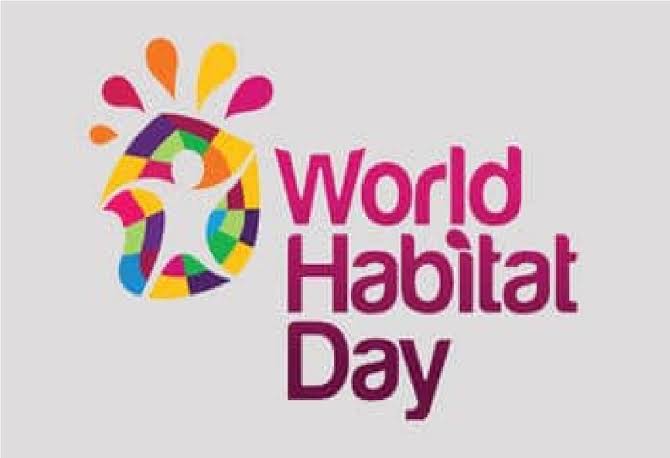NatureNews EDITORIAL: Remembering World Habitat Day amidst floods, Covid-19

Today is World Habitat Day. The United Nations’ General Assembly, through Resolution 40/202 of
1985, designated the first Monday of October each year as the World Habitat Day to reflect on the state of towns and cities. The day was first celebrated in 1986 with the theme “Shelter is My Right”. Kenya’s capital city, Nairobi hosted the observance of the maiden event that year.
The theme of this year’s celebration is “Housing For All: A Better Urban Future” The Global Observance is hosted by the city of Surabaya in Indonesia.
The World Habitat Day is also intended to remind the world that everybody has the power and the responsibility to shape the future of cities and towns. The outbreak of the coronavirus pandemic has brought to the fore the need for the world to be more conscious about the way we live. It has forced us to be more careful with the way we manage waste and made us even more committed to the protection of the environment. The pandemic has taught us to have serious consideration for hygiene in the use of basic services and infrastructure.
Due to Covid-19, work places, educational institutions, recreational facilities and even health centres were shut for several months. Even as they are being reopen now, restrictions and new guidelines are issued by governments as a way of saving lives.
But enforcing the protocols has been a big challenge. In places where ignorance and poverty are prevalent, it is yet to be seen how government can enforce the rules.
Many Nigerian towns are overcrowded and access to clean water and sanitation is poor. What is more? Many living in slums and informal settlements or in homelessness hardly have access to basic hand-washing facilities. It becomes very difficult to enforce social distancing and regular hand-washing which are very vital in tackling the disease.
Similarly, reckless handling of waste is a big cause for concern. Coronavirus was detectable up to two to three days on plastic and glass bottles. Yet these filthy bottles are picked from garbage heaps by young men, human scavengers, and sold to food and beverage producers. It is said that improper recycling and disinfection of these bottles across the country could be another potential source of the viral disease as the used bottles may be contaminated with the virus and such reuse of contaminated bottles without properly disinfecting them would certainly increase the spread of the viral disease. This is environmental hazard and potential for another pandemic.
Human activities in the cities have continued to cause great harm to the environment. Industrial activities, improper disposal of waste, open defecation, planting of crops and the application of dangerous chemical, open grazing of animals in the cities, etc, have continued to pose serious health risk to humanity.
Sadly, as the world is battling Covid-19, heavy floods are also taking their toll on dwellers. Many homes and farmlands have been submerged this year, exacerbating the plight of people who are already impoverished by the calamitous coronavirus.
As the UN-Habitat and partners organize activities, events and discussions on urban sustainability this month, NatureNews wishes that humanity will redouble efforts toward tackling the menace of flooding and housing deficit. It is our fervent hope that many more will commit themselves to improving the human settlements and the quality of urban life. We wish all stakeholders a happy world habitat day.
